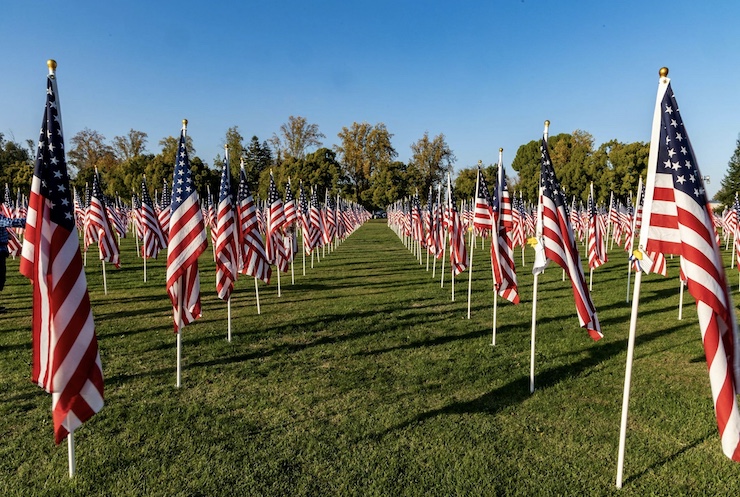
The United States first began honoring its veterans on November 11, 1918, in recognition of the end of World War I. It wasn’t until 1954, when President Dwight Eisenhower signed a bill establishing November 11th as Veterans Day, that we began officially honoring anyone who has served in any capacity in the United States Armed Forces. Today, there are 17.9 million veterans in the United States who are honored on Veterans Day.
Each year, nearly 200,000 veterans transition from military service. Many of these individuals struggle to find their place in civilian life. They are accustomed to functioning in a military environment, which doesn’t always translate well into civilian life, especially when it comes to employment. Major General Dustin “Dusty” Shultz, a two-star general in the United States Army, is preparing to transition back to civilian life. She has a plan for this time, which includes a support system and a job lined up. But Major General Shultz is well aware that many of her comrades will find it hard to land a good job. ” The biggest advantage that a lot of veterans have are all those soft skills that most of corporate America takes years to attain- loyalty, integrity, honesty, and a great work ethic,” she said. “They have the discipline. Sometimes they have just these phenomenally exquisite skills. And why are we not harnessing that?”
Fortunately, times are changing, and resources are being made available to assist veterans through this transition. As the drone industry continues to grow, it has opened up an unprecedented number of job opportunities that many veterans are ideally suited for. Drones used in military operations still represent the largest segment of the industry, so many veterans are already familiar with the technology. In 2011, while serving in Afghanistan in the Marine Corps, Chris Lewis had his first interaction with a drone, an RQ-16 Raven. Chris said that by working with the drone, he ” really gained that perspective of how UAS technology can really help you in the field.”
After completing his time in the military, Chris went to North Carolina State University, where he learned more about how drone technology works. He eventually found employment in the drone industry, but more importantly, he recognized that the skills he had developed could benefit other veterans. In 2020, Chris founded the Vets to Drones program to help prepare veterans for an enriching career in the drone industry. As stated on their website, “The Vets to Drones program prepares veterans to enter the commercial drone industry by providing free resources and training to current industry standards.”
When the program first launched, Chris had about 40 veterans signed up. Within a year and a half, Vets to Drones had close to 1,400 veterans enrolled in their training and resources program across the United States. “It’s a very exciting industry. There are endless opportunities coming up, but it’s also a perfect fit for our veterans,” Chris said. He explained how working with equipment like drones is similar to what veterans did while enlisted. That familiarity is just the first step in providing veterans with the confidence they need to succeed. Then, going out into the field and conducting drone operations is another familiar circumstance for veterans. It provides them with a purposeful and productive task that feels almost like an adventure.
Chris went on to say that these opportunities are only going to continue to grow. Not only are programs like Vets to Drones providing training and resources for veterans to enter the commercial drone industry, but the program also gives veterans a chance to come together and support each other. “A lot of veterans who come to our program just want to get out with other veterans, fly, and have a good time—taking some cool pictures and videos,” he said. As the drone industry continues to expand, it offers veterans a unique opportunity to apply their skills in a new and growing field. By harnessing the discipline, leadership, and problem-solving abilities that veterans already possess, the drone industry is creating pathways for veterans to thrive in the civilian workforce. With continued support and innovation, this promising sector could become a key player in ensuring that veterans have the tools they need to build fulfilling, successful futures after their military service.
|